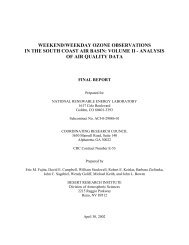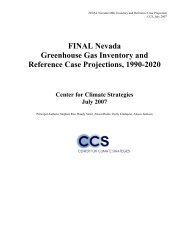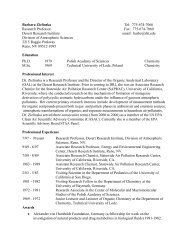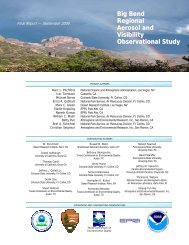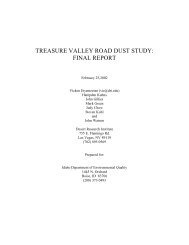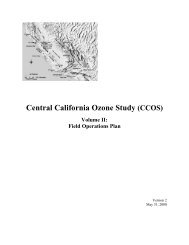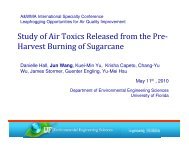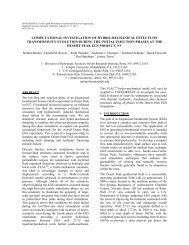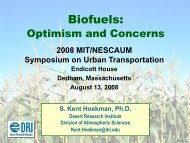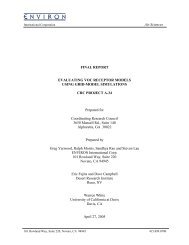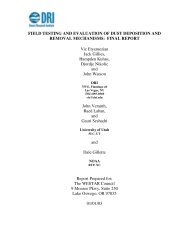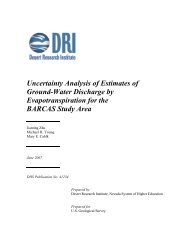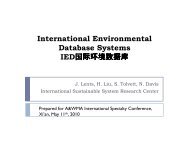Assessment of Conversion Technologies for Bioalcohol Fuel ...
Assessment of Conversion Technologies for Bioalcohol Fuel ...
Assessment of Conversion Technologies for Bioalcohol Fuel ...
You also want an ePaper? Increase the reach of your titles
YUMPU automatically turns print PDFs into web optimized ePapers that Google loves.
Pure Energy Corp., Paramus, New Jersey<br />
Organizational Background–Pure Energy Corporation (PEC), established in 1992,<br />
is a renewable energy and biotechnology development company, with partner<br />
laboratories and testing centers in five states. PEC’s activities have been partly<br />
funded by USDOE, USEPA and other federal and state agencies. Among various<br />
bi<strong>of</strong>uel production technologies under development by PEC is an integrated biorefinery<br />
concept that combines biochemical and thermochemical technologies. PEC has also<br />
developed and patented a number <strong>of</strong> proprietary fuel <strong>for</strong>mulations<br />
Technology Characteristics–The PEC technology process, shown in Figure A14,<br />
involves feedstock size reduction followed by an integrated two stage hydrolysis<br />
process. The resultant slurry contains lignin, ash and unreacted cellulose, which can<br />
be used to generate electricity and process steam. The glucose produced through<br />
hydrolysis can be treated to produce ethanol and organic acids. The xylose<br />
component is processed using thermochemical treatment. The technology combines<br />
fuels, solvents and chemicals production by combining fermentation and catalytic<br />
thermochemical conversion processes into a single processing system. Among the coproducts<br />
obtainable from the process are organic acids, furans, aldehydes and esters.<br />
Development Status–PEC reports that, since 1997, it has operated its biorefinery<br />
system in the laboratory, at the pilot scale and in a demonstration plant, working in<br />
conjunction with the Tennessee Valley Authority. Over 42 different biomass feedstocks<br />
have reportedly been tested, including various agricultural wastes, municipal solid<br />
waste components and wood waste and other industrial wastes.<br />
Future Plans–PEC plans to continue developing or licensing innovative technologies<br />
<strong>for</strong> the production <strong>of</strong> fuels, the fuels' constituent chemicals and their <strong>for</strong>mulations. The<br />
company indicates that it is prepared to scale up its technology and implement it in a<br />
commercial plant.<br />
92



